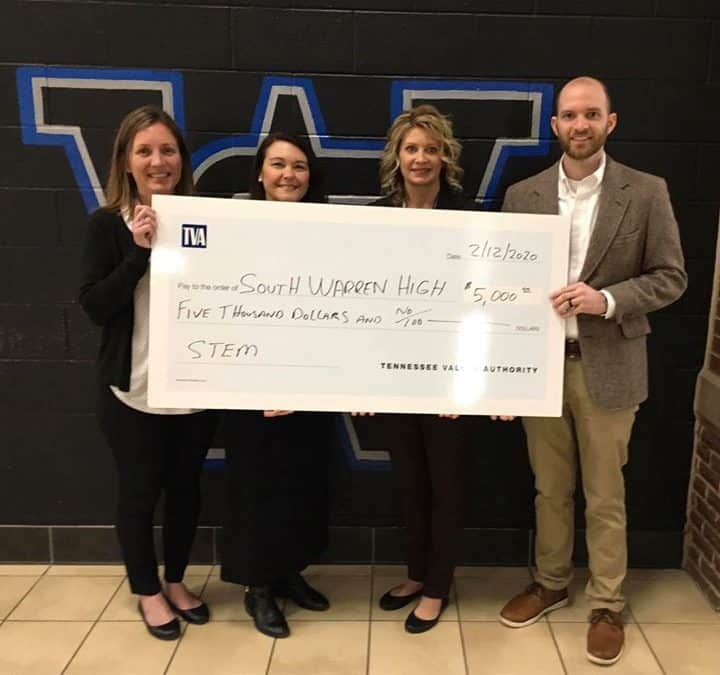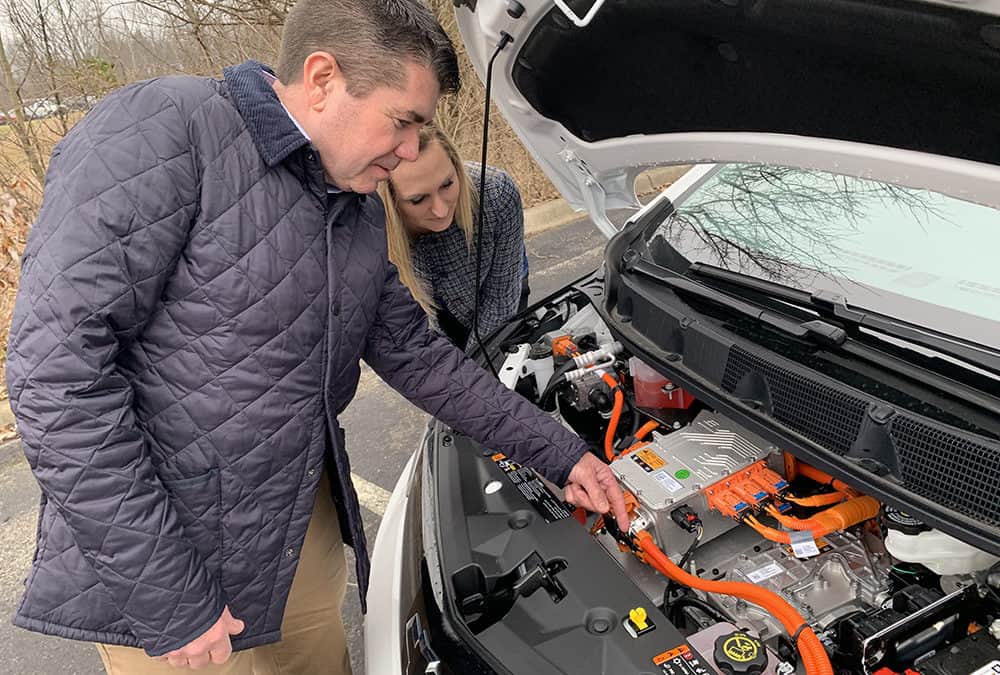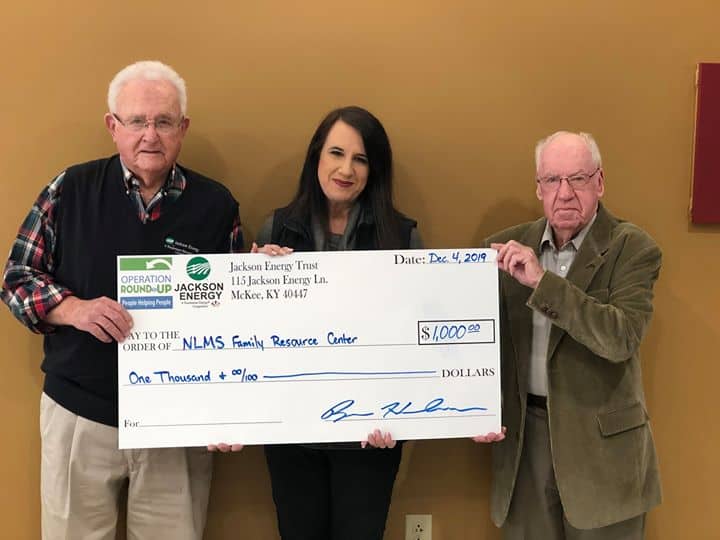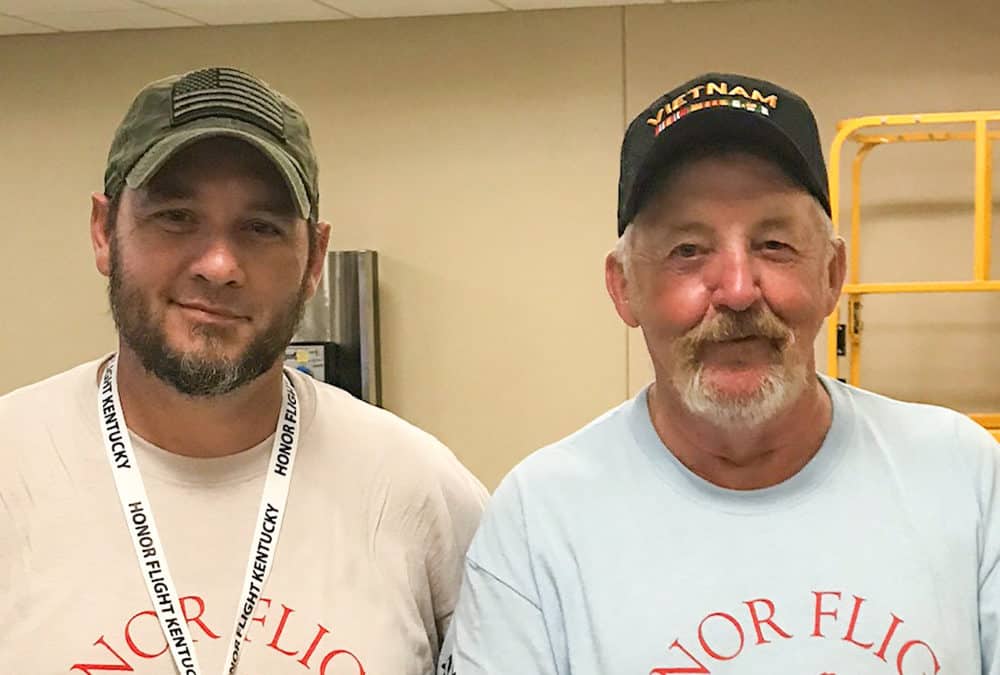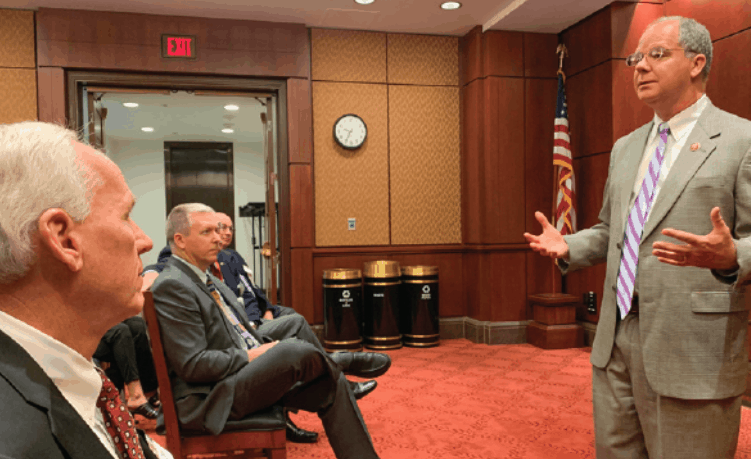Shortly after midnight on Dec. 17, congressional leaders met behind closed doors at the U.S. Capitol to negotiate a last-minute budget deal that would prevent a government shutdown. What became clear by sunrise was that the deal also included the RURAL Act, a simple one-page bill that would retain the tax-exempt status of electric cooperatives.
“It was really touch-and-go until the last minute,” said NRECA’s Paul Gutierrez, who led the two-year lobbying effort to resolve the issue. “The overwhelming emotion I felt was relief. I was feeling good for our team and for our members that we weren’t going to have to go into 2020 with this hanging over our heads.”
Some co-ops were facing the prospect of paying taxes this year because of a provision in the 2017 Tax Cuts and Jobs Act that redefined government grants as income. Any co-op that accepted grants to restore service after storms or bring broadband service to rural communities risked losing its tax-exempt status by exceeding the 15% limit on non-member revenue. The RURAL Act’s passage fixed that.
Oregon Co-ops Get Creative
Oregon’s co-ops, battered by heavy winter storms in 2019 that knocked out power for thousands, were among those facing the loss of their tax-exempt status because they accepted disaster relief grants from the Federal Emergency Management Agency.
The co-ops and statewide association lobbied hard for Oregon Sen. Ron Wyden’s support for the bill, sending thousands of emails, writing letters to the editors of local newspapers and giving interviews to Oregon television stations. Winning Wyden’s support was crucial because he’s the senior Democrat on the Senate Finance Committee, which has jurisdiction over tax bills. He also ended up being one of the lawmakers in that all-important Dec. 17 deal-making session, along with Sen. Rob Portman, R-Ohio, the lead sponsor championing the RURAL Act in the Senate.
Just two days before that gathering, Ted Case, executive director of the Oregon Rural Electric Cooperative Association, attended one of Wyden’s town hall sessions in the state and presented him with a copy of the association’s magazine with the senator’s photo on the cover.
“The text on the cover said ‘Senator Ron Wyden is in a key position to help electric cooperatives. We’re counting on him,’” Case said. “That made an impression on him as a supporter of rural Oregon. The next day his staff called me and said the RURAL Act would be in the bill. If you’re going to lobby for something, you’ve got to go all-in and use everything at your disposal.”
Victory Grows From Year of Lobbying
While the victory was clinched in that late-night meeting of lawmakers, the moment was only possible because of intense lobbying and grassroots efforts by co-ops and NRECA that began a year earlier, said Louis Finkel, NRECA’s senior vice president of government relations.
“What got done in the end was really driven by what we did starting at the beginning of the year,” Finkel said. “Before we began lobbying on the RURAL Act, we were meeting with more than 100 new members of the House and Senate in Co-op 101 sessions to explain what co-ops are: that we are not for profit and that we serve the communities where we live. That conversation was the precursor to pass the bill.”
As Congress entered its August recess, NRECA and co-op leaders crafted a campaign-style approach to pass the bill, including media outreach and communications from co-op CEOs, directors, employees and consumer-members to tell their elected officials what was at stake.
Nearly 28,000 messages were sent to Congress through the Cooperative Action Network in support of the RURAL Act. In the end, more than two-thirds of the House and more than half of the Senate co-sponsored the bill. And when it came time for congressional leaders to decide which of the more than 100 tax-clarifying provisions would be included in the funding package, the RURAL Act was one of the few to make the cut.
“A lot of what made this possible was we had compelling stories from our members across the country,” Finkel said. “We were telling Congress: ‘This is a problem for real people in your states and your communities.’”
Small Co-op Brings Its Story to Congress
One of those stories came from Otsego Electric Cooperative in Hartwick, New York. CEO Tim Johnson realized early on that the 2017 tax law threatened his small co-op’s ability to bring high-speed internet service to its 4,000 members, many of whom live in impoverished areas.
He flew to Washington several times to lobby New York lawmakers, explaining that the co-op was at risk of losing its tax-exempt status because it accepted $10 million in state broadband grants. The co-op was facing federal taxes of as much as $2 million, along with other expenses associated with becoming a taxable entity.
“It was a hallelujah moment when the legislation was signed,” Johnson said. “I had many sleepless nights in December before that.”
Strategy Offers Lessons for Future
The bill’s bipartisan sponsors were also tireless in urging their colleagues to support the legislation. When NRECA CEO Jim Matheson reached out to House Ways and Means Chairman Richard Neal, D-Mass., Neal joked that he was tired of hearing about the RURAL Act because Rep. Terri Sewell, D-Ala., had been lobbying him constantly to support the bill. Sewell introduced the legislation in the House along with Adrian Smith, R-Neb. In the Senate, Portman led the effort along with Tina Smith, D-Minn.
“We were fortunate to have extraordinary champions,” Finkel said.
He said NRECA and its member co-ops will use the same campaign-style approach the next time they are lobbying on a major bill.
“This shows what we can do when we lock arms toward a common effort,” Finkel said. “Our entire co-op community should be proud of what we did and should celebrate their efforts in making this happen. But we know we can continue to improve on this model and build an even stronger grassroots network. That’s our objective for this year—we won’t be resting on our laurels.”
Erin Kelly is a staff writer for NRECA.





